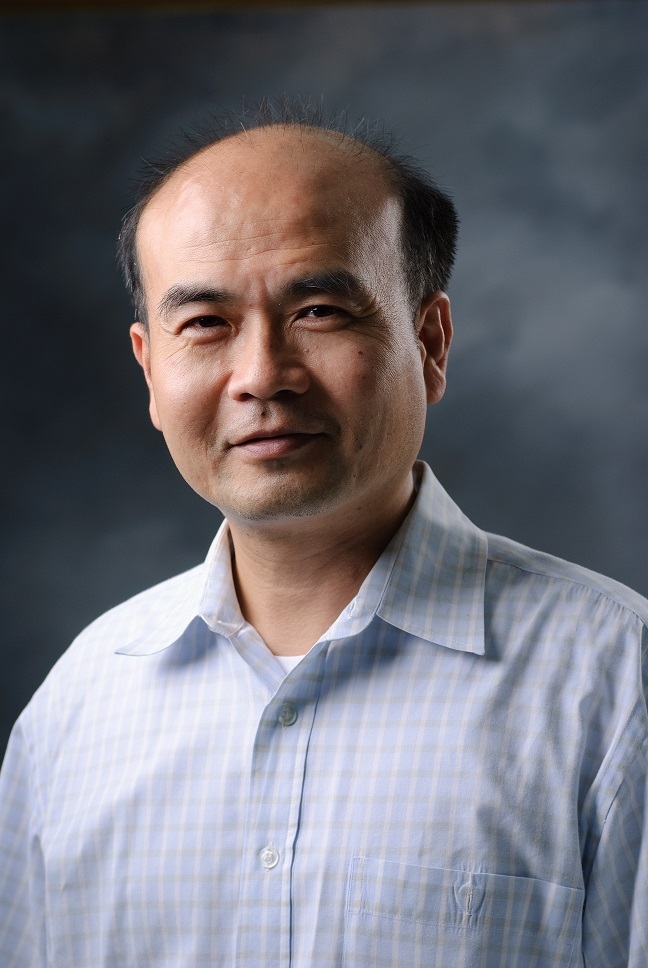|
1. Tseng, H. M., & Liu, F. C. (2011). Assessing the Climate for Creativity (KEYS): Confirmatory
factor analysis and psychometric examination of a Taiwan version. International Journal of
Assessment and Selection, 19(4), 438-441. (SSCI; NSC97-2410-H-182-005)
2. Tseng, H. M., Huang, Y. Y., & Ho, L. H. (2011). Relationship between Professionalism and Job
Satisfaction among Medical Technologists (in Chinese). J Biomed Lab Sci, 23(3), 105-111.
3. Tseng, H. M., Chung, P.-J., Wang, H.-H., & Chuang, Y.-J. (2009). Examining Factors related to
Acceptance of Telemedicine among Taiwan's expatriate workers living in Shanghai of China.
Journal of Taiwan Association for Medical Informatics, 18(4), 12-27.[in Chinese]
4. Tseng, H. M., Liu, F. C., & West, M. A. (2009). The Team Climate Inventory (TCI): A
psychometric test on a Taiwanese sample of work groups. Small Group Research, ,40(4),
465-482. (SSCI =1.167; NSC 94-2416-H-182 -006)
5. Tseng, H. M., Chan, P. T., & Chiang, C. Y. (2009). Applying Technology Accpetance Model to
examine factors related to nurses' acceptance for the use of mobile nursing station in hospitals.
Journal of Taiwan Association for Medical Informatiics, 18, 23-38.[in Chinese]
6. Tsai, H.L. & Tseng, H.M. (2008). A Study of The Relationship between Organizational Innovation
Climate and Research Performance for Traditional Chinese Medical Attending Physicians.
Formosan J of Medicine, 12 (2),1-7 [in Chinese] (NSC 94-2416-H-182)
7. Tseng, H.-M., Hsu, C.-Y., & Chao, M. (2006). Coping with Electronic Medical Record System:
Influences of Manpower Allocation in Medical Record Department on Job Satisfaction. The
Journal of Taiwan Association for Medical Informatics, 15(3), 41- 56. [in Chinese]
8. Tseng, H.-M., Lu, J.-f. R., & Gandek, B. (2003). Cultural Issues in Using the SF-36 Health
Survey in Asia: Results from Taiwan. Health and Quality of Life Outcomes, 1, 72 (9 pages)
(NSC-92-2416-H-182-012)
9. Tseng, H.-M., Lu, J.-F. R., & Tsai, Y.-J. (2003). Assessment of Health-Related Quality of
Life (II): Norming and Validation of SF-36 Taiwan Version. Taiwan J of Public Health,22,
512-518. [in Chinese]
10. Lu, J.-F. R., Tseng, H.-M., & Tsai, Y.-J. (2003). Assessment of Health-Related Quality of Life in
Taiwan (I):Development and Psychometric Testing of SF-36 Taiwan Version. Taiwan J of
Public Health,22,501-511. [in Chinese]
11. Huang, Y.-G. L., Tseng, H.-M (2002). Preliminary findings of Adult Health Screening under
National Health Insurance in Taiwan. Methods of Information in Medicine, 41(3), 196-201. (SCI)
12. Huang, Y.-G. L., Tseng, H.-M., & Luo, J.-C. (2002). Findings of anthropometric and laboratory
data from adult health screening under the National Health Insurance Plan in Taiwan. The
Chang Gung Medical Journal, 25(1), 29-38.
13. Tseng, H. M., Tiplady, B., Macleod, H. A., & Wright, P. (1998). Computer anxiety: A comparison
of pen-based personal digital assistants, conventional computer and paper assessment of
mood and performance. British Journal of Psychology, 89(Part 4), 599-610 (SSCI).
14. Tseng, H.M., Macleod, H. A., & Wright, P. (1997). Computer anxiety and measurement of
mood change. Computers in Human Behavior, 13(3), 305-316 (SSCI).
Second or other authors:
1. Teng, C. I., Tseng, H. M., Li, I. C., & Yu, C. S. (2011). International English Big-Five
Mini-Markers: Development of the traditional Chinese version (in Chinese). [International
English Big-Five Mini-Markers 之繁體中文版量表發展]. J of Management, 28(6), 579-600.
(TSSCI)
2. Chuang, Y.-J., Liu, C. C., Tseng, H. M., & Wang, H.-H. (2011). A case study of introducing a
physical examination system developed by Taiwan's information company into healthcare
organizations in China (in Chinese). The Journal of Taiwan Association for medical
Informatics, 20(1), 1-14.
3. Chen, M.-J., Tseng, H.-M., Huang, Y.-L., Hsu, W.-N., Yeh, K.-W., Wu, T.-L., et al. (2008).
Long-term Outcome and Short-term Survival of Patients with Systemic Lupus Erythematosus
after Bacteraemia Episodes: Six-year follow-up. Rheumatology, 47, 1352-1357. (SCI)
4. Teng, C.I., Tseng, H.M., Wu, H.H. (2007). Positive mood as a mediator of the relations
among musical preference, postconsumption product evaluation and consumer satisfaction.
Psychological Report, 100, 927-938 (SSCI).
5. Li, C.-L., Tseng, H.M., Tseng, R.-F., & Lee, S.-J. (2006). The effectiveness of an aerobic
exercise intervention on worksite health-related physical fitness - a case in a high-tech
company. Chang Gung Medical Journal, 29(1), 100-106
6. Lin Y.-S., Chen, S.-H., Hung, F.-C., & Tseng, H.-M. (2005). Different Voices: Exploring the
Difference of Psychosocial Reactions to Traumatic Event between Female and Male Survivors
(in Chinese). Archives of Clinical Psychology, 2(1), 31-40.[in Chinese]
7. Chiang, M.-C., Chou, Y.-H., Wang, C.-R., Tseng, H.-M., & Li, C.-L. (2003). A survey of bone
mineral content and density in full-term and preterm infants. Clinical Neonatology, 10(1), 5-8.
8. Chen, C. Y., Tseng, H. M., Chen, L. C., Tsao, C. H., Kuo, M. L., Ou, L. S., & Huang1, J. L.
(2003). Use of a new fluorescence immunoassay to detect anti-dsDNA antibodies is more
correlated with disease activity and complement than the ELISA method in SLE patients.
Lupus,12, 266-273.( SCI)
9. Chen, SH, Huang, FC, Lin, YS, Tseng, HM (2002). Trauma and psychosocial aftermath
among high- and low-exposure adults three months post the 921 Chi-Chi earthquake in
Taiwan. Chinese Journal of Psychology, 44, 167-88. (TSSCI)
10. Chen, S.-H., Lin, Y.-H., Tseng, H.-M., & Wu, Y.-C. (2002). Posttraumatic stress reactions in
children and adolescents one year after the 1999 Taiwan Chi-Chi earthquake. Journal of
the Chinese Institute of Engineers, 25(5), 597-808.(SCI)
11. Lin, P. S., Tseng, H. M., Wong, M. K., & Cheng, P. T. (2000). The effects of Tai-Chi-Chuan
on balance related functional performance and the occurrence of falls of the elderly. Journal
of the Physical Therapy Association of the R.O.C, 25, 27-39. [in Chinese]
12. Chen, S. H., Lin, Y. S., Hung, F. C., & Tseng, H. M. (2000). Posttraumatic psychosocial
reactions after the 921 earthquake in Taiwan: Psycho-Socio-Cultural connotation of the
changed and unchanged. J. of Culture and Society, 10, 36-60. [in Chinese]
13. Lin, P. S., Tseng, H. M,, Cheng, P. T., Wong, M. K., & Tang, F. T. (1999). The effects of
Tai-Chi-Chuan on sensorimotor function of the elderly. Journal of the Physical Therapy
Association of the R.O.C, 24, 231-241. [in Chinese]
|

